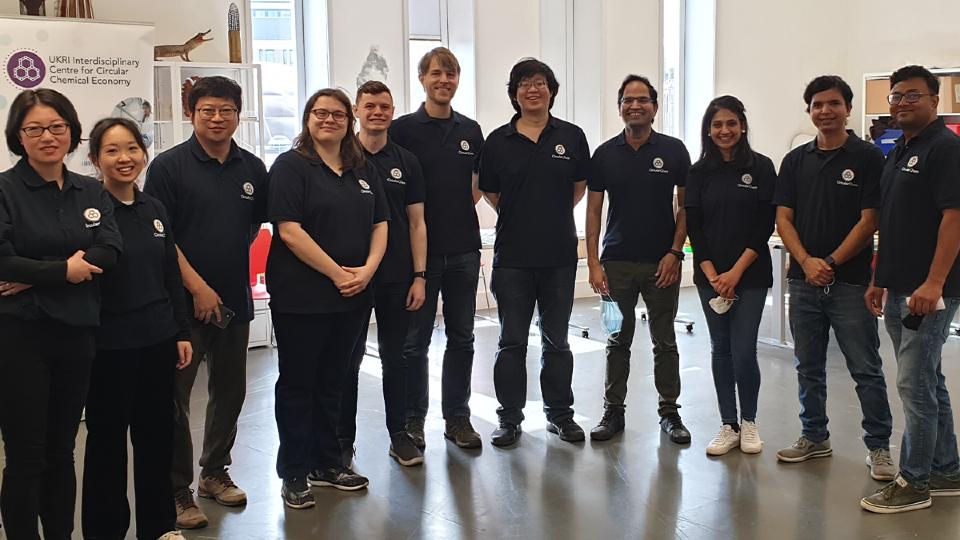The group, which includes 10 colleagues from Loughborough University, has won the Environment, Sustainability and Energy Horizon Prize for advancing circular economy solutions for the UK chemical industry through chemical recycling, biomass conversion and direct CO2 reduction.
Drawn from nine universities with collaborators from industry, government and NGOs, the group will receive a trophy, while each team member will also get their own special individual token.
The UKRI CircularChem project was an interdisciplinary, multi-institute programme that set out to advance circular economy solutions for the UK chemical industry through chemical recycling, biomass conversion and direct CO2 reduction.
The Centre has been pioneering in the use of biomass, solid waste carbon, and carbon dioxide as three alternative feedstocks for the chemical industry, to reduce reliance on fossil fuels and mitigate greenhouse gas emissions.
Through cutting-edge science and innovation, the team has developed enabling technologies and systems understanding for these feedstocks while actively advocating for a paradigm shift within the field. This advocacy has reshaped industry understanding, with these feedstocks now recognised as critical alternatives.
Their approach is the development of a sector-wide solution rooted in circularity and focusing on the resources flow of olefin, the raw material for 70% of all organic chemical production. It represents a fundamental paradigm shift away from the current make-use-dispose model, requiring scientific innovations at all levels.
Starting from the development of new disruptive technologies, their integration into existing processes and evaluation of whole system impacts, to the identification of non-technical barriers and how they can be overcome.
After receiving the prize, Professor Jin Xuan, Director of the Centre and Visiting Professor of Low Carbon Processes said: “It is an honour to accept the RSC Horizon Prize on behalf of the CircularChem team. This recognition is a testament to the transformative power of interdisciplinary research and systems thinking in addressing some of the most complex challenges of our time.
"This prize affirms the importance of working together to reimagine how chemistry can drive sustainable change at every level of society.”
